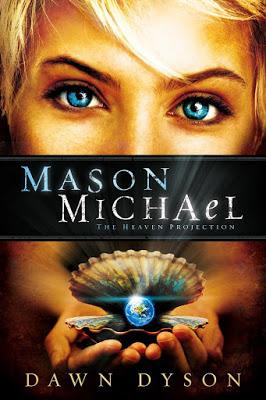
By Dawn Dyson I am often asked, “What is Christian Fiction?” There are many ways to answer this important question and my hope is, by the time you are finished reading this blog post, you will become more interested in reading, if not writing within, this amazingly soul- and mind-freeing genre which deserves respect in both the literary and academic world. The most encompassing answer is this: Christian fiction is a parable. Parables were used by Jesus to compare temporal reality with God’s eternal plan. He masterfully weaved stories to explain both God’s purpose and human destiny within it. He did this while reaching the heart of each individual who would listen. Highly spiritual truths and intense earthly complications require a parable to decipher. The ultimate parables are Jesus’ parables—there are none on the earth greater than His own. Christian fiction is simply an echo, which continually points back to the Bible. The use of Christian fiction is to present a parable that is contemporary and relatable, yet the same unchanging biblical truths are revealed in order to help the reader find her or his authentic, God given purpose today. According to the Amplified Classic version, parables both hide and reveal important truths (Ps 78:1-3).[1] This is because quality thoughts, like gems, are more valuable the deeper we dig—in this case, into our own souls, hearts and minds. This practice of guided soul-searching, through the art of story, helps us separate our authentic, eternal destiny from temporary distraction. Quality Christian fiction takes the reader on a journey that comes closer to the dichotomy of heaven and hell so we can do a fly-over in our eternal imagination and consider how these polar concepts (and places) help us shape our life here and now. These are not things we typically spend our time thinking about, but the outcome should offer us life lived with more meaning, grace, peace, assurance and rest. Christian fiction is healing, well worth our time, and it is dramatic, enlightening and entertaining to the highest degree! Christian fiction is inspirational and motivational. A literary friend of mine once said, “There is no such thing as fiction.” What she meant is that human imagination is, or can be, just as real as reality. Imagination as defined by Noah Webster, is not “imaginary,” but rather the representation of individual thought.[2] We live out our innermost considerations and beliefs, so may they be good (Prov 23:7)! For instance, we tell children to follow their dreams. This encourages personal achievement which, when coupled with morality and ethics, contributes to society rather than detracts from it. We know, as parents or teachers, this positive, intrinsic motivation will, in turn, bless our child’s life much more than if they make poor decisions. In God’s eyes, we are all children whose innermost thoughts can be illusive in a fallen world (Phil 4:8; Gal 3:26; Acts 2:7). Christian fiction that is based and balanced within the whole counsel of the Word of God inspires us as individuals because it reaches our personal belief systems and challenges us to reevaluate our views about God, humanity and ourselves. If the plot regards a trial to overcome (and what good story doesn’t), a Christian fiction writer can use characters to lead a reader through a maze of earthly complication (such as divorce, illness, conflict, oppression) into the light of victory (John 8:36). This is motivation at its best because it empowers readers and offers them an appealing character or outcome to aspire to. Christian fiction provides a vision. Christian fiction provides the contemporary visualization of timeless biblical principles. Proverbs 29:18 says, “Where there is no vision [no redemptive revelation of God] the people perish.” Christian fiction is a narrative based in the Word of God which outlines the earthly battle of goodness and evil through amazing scenes and complex characters. It illuminates a path through spiritual warfare in the modern age. The majority of the Bible, which is absolutely, 100% true, is written in narrative, parable, poetry, and dialog.[3] Why? The written word of the Lord is creatively and visually beautiful—like He is. Further, the secularized world will listen to, read or watch an enthralling story! Christian fiction is a softer way to communicate truth and to inspire a reader to live bolder and more authentically from within (John 16:12-13). The beauty of a novel is that what is interpreted or drawn out from the story is not just the words the author placed upon the page, but what meets the deepest, most immediate needs of the reader. This vein of communication runs cleaner than a verbal exchange, in many respects. Christian fiction takes the art of soul-connection far deeper, broader and higher than secular fiction. It is an introduction into deciphering the parables and narratives of the Bible and putting them to use in today’s context. God is the ultimate Storyteller and the goal of a contemporary parable is to draw readers into the Bible as a guide to modern-day living. Christian fiction is a biblically-based way to pray. Christian novelists pray with ink and follow God when writing creatively. God’s design of spiritually writing through people is illustrated through the prophets, such as John or Isaiah (Rev 1:19; Eze 9: 2-11; Is 30:8). Biblical writing is “inspired” or “God-breathed” (2 Tim 3:16). Though canonized Scripture is far above any other writing on the earth, writing Christian fiction (and non-fiction) is blessed if done in love with a motivation to help other souls connect with God’s plan. The process of writing Christian work is exemplified in Habakkuk 1 through 2:4. Without pain, Habakkuk would have never raised his question to the Lord regarding the injustice he witnessed. Without a question from a man or woman (prayer), God would not have had a reason to answer the case. The interesting thing is the Lord’s response to Habakkuk’s complaint: “Write the vision.” In essence, the Lord is saying, if you see a problem, Writer, process My Word within your own soul and write your solution down for other people to read (paraphrase, mine). God’s answers generally help more people than just the person praying! When asked directly, “How do I overcome abuse,” it is difficult to come up with an adequate response on the spot. What I can do, however, is hand the person the Bible and the Beautiful Justice series.[4] This is such a privilege, I cannot express the feeling of reward this offers, particularly when the person contacts me afterwards for a follow-up conversation. This is a God-wink and a really good reason to be alive. God heals me through writing, and He uses what was written to help countless others. It is an amazing thing to witness (Is 43:10; John 15:27). Christian fiction is a theological negotiator. Although Christian fiction varies, I will conclude with its legitimate use as a theological negotiator. There are many intentional dichotomies woven into the Word of God which force us to seek God for ourselves and decide what (or in whom) we will believe. John 3:16 tells us plainly that Christ’s free gift of salvation is for “whosoever will believe in Him” (Jesus Christ as the Son of God). God’s ways are above our ways (Is 55:8-9). In many theological textbooks or oral discussions, there are things of God that are not easily explained with literal, or analytical, terminology. Much of the language of the Bible is both literal and figurative in definition (as it is in the original Hebrew and Greek), as well as spiritual in nature, which allows for a basic understanding that God has concrete directives for our conduct on earth and yet continually implores us to have an eye upon His heavenly and vast ways as the triune God—Father, Son and Spirit. God is all and He likes an element of mystery because it fosters faith and a desire to seek Him as the awesome, all-knowing, all-powerful God. Revelation and sanctification are holy processes of increase and advancement wherein we grow. During places of theological tension within academia and doctrinal debate, there will often come a place where a Christian novelist is cited for a resolution, such as the contemporary favorite, C. S. Lewis, or Frank Peretti (on spiritual warfare)[5], or Tim LeHaye and Jerry Jenkins (on the rapture), to name a few. In other words, the only present answer to the biblical dichotomy is in parable form! This is because novels and parables not only cause us to explore higher spiritual concepts, but they also engage us to feel. After all, Jesus asks us to love God with all our heart, soul, mind and strength, so we can also love ourselves and others (Mark 12:30-31). Salvation is healing and wholeness in every area. In a world that tries to deny or defeat positive, generous feelings, such as compassion or fortitude, Christian fiction can heal our spectrum of emotion and reengage our core with the desire to live the authentic zoe life Christ died to give us. As a novelist, I thank God for the privilege of being able to write stories with a God Who does the same, on a far grander scale. He is the Author and Finisher of our faith (Heb 12:2). I simply follow Him, with both boldness and humility, in words. Thank you for reading this post and I hope it gives you a glimpse into the beautiful, soul-changing, parable-based genre called Christian Fiction. God Bless, Dawn Dyson Bibliography Erickson, Millard J. Christian Theology, 3rd ed. Grand Rapids, MI: Baker, 2013. Kaiser, Walter C. Jr. and Moises Silva, Introduction to Biblical Hermeneutics: The Search for Meaning. Grand Rapids, MI: Zondervan, 2007. Slater, Rosalie J. American Dictionary of the English Language: Noah Webster 1828. Chesapeake, VA: Foundation for American Christian Education, 1995.
[1] Unless otherwise noted, all biblical passages referenced are in the Amplified Bible, Classic Edition (La Habra, CA: The Zondervan Corporation and the Lockman Foundation, 1987). Scripture quotations taken from the Amplified Bible (AMPC), Copyright © 1954, 1958, 1962, 1964, 1965, 1987 by the Lockman Foundation. Used by permission. www.Lockman.org. [2] Rosalie J. Slater, American Dictionary of the English Language: Noah Webster 1828 (Chesapeake, VA: Foundation for American Christian Education, 1995), 105. [3] Walter C. Kaiser, Jr. and Moises Silva, Introduction to Biblical Hermeneutics: The Search for Meaning (Grand Rapids, MI: Zondervan, 2007), 123, 139.
[4] In addition, this author recommends Beauty for Ashes and Battlefield of the Mind, both by Joyce Meyer. [5] Millard J. Erickson, Christian Theology, 3rd ed. (Grand Rapids, MI: Baker, 2013), 317.

About the Author
 Dawn Dyson is the author of the Beautiful Justice trilogy
published by Creation House: Bella Maura (Book One); Justice Quinn (Book Two);
and Mason Michael: The Heaven Projection (Book Three). This series depicts
characters who overcome familial abuse situations via a beautiful love story,
and the series exemplifies the biblical “thousand-year rule” with Christ. Ms.
Dyson is originally from rural Nebraska.
Dawn Dyson is the author of the Beautiful Justice trilogy
published by Creation House: Bella Maura (Book One); Justice Quinn (Book Two);
and Mason Michael: The Heaven Projection (Book Three). This series depicts
characters who overcome familial abuse situations via a beautiful love story,
and the series exemplifies the biblical “thousand-year rule” with Christ. Ms.
Dyson is originally from rural Nebraska.
She has degrees in both Animal
Science: Equine Technology and Special Education: Behavioral Disorders. Ms.
Dyson is presently earning her Masters of Divinity: Homiletics in Virginia. She
is a motivational Christian speaker and Bible teacher. She has devoted much of
her life to assisting others in overcoming difficult or abusive situations by
finding their divine purpose through the salvation offered only through Jesus
Christ. Her hobbies include riding and showing American Quarter Horses and
Paints in English events, traveling, gardening, and hiking. Ms. Dyson
particularly enjoys mentoring others in ministry. Learn more at www.dawndyson.com.
Facebook | GoodReads
***
Check out a couple of her titles below!
 The third installment of the Beautiful Justice Series!
The third installment of the Beautiful Justice Series!
“For one hundred thousand souls be saved, save me.”
In the final hours of Earth’s existence, eighteen-year-old Alexa Dyson holds the hope of humanity--the key to salvation of lost souls in a world where proclaiming Christ is a death sentence. Frightened and alone, Alexa finds herself warming up to an unlikely protector who vows to care for her and her unborn child. But when faced with a series of incredible events, Alexa realizes there may be more to her handsome young savior than meets the eye.
With judgment day approaching and countless lives hanging in the balance, will Alexa accept her divine assignment before it is too late? And when the time comes, will she be willing to make the ultimate sacrifice?
This thrilling conclusion to the Beautiful Justice series illustrates the power of intercessory prayer to redeem generational sins, and sheds light on justice and retribution, mercy and divine preservation. Mason Michael will break your narrow perception of heaven and inspire you to trust God’s sovereign will above all else. GRAB IT ON AMAZON!
 Grab the first novel on Amazon, too!
Grab the first novel on Amazon, too!
 Brought to you by:
Brought to you by:
 If you're interested in being featured, visit us HERE!
If you're interested in being featured, visit us HERE!
WHAT IS CHRISTIAN FICTION? A GUEST ARTICLE BY CHRISTIAN AUTHOR DAWN DYSON

